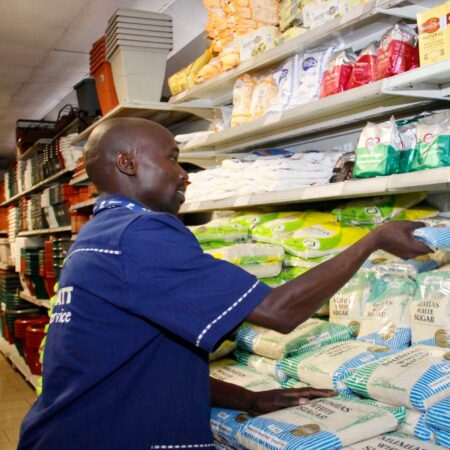- Zambia relies heavily on imports from other countries to meet its fuel needs. This dependence on imports has led to fluctuations in pump prices and supply shocks.
- Angola, as a major oil producer in the region, has the potential to supply Zambia with the fuel it needs.
- Zambia has agreed to buy a stake in Angola’s Lobito refinery, which is currently under construction.
Zambia is planning to import fuel from its oil-producing neighbor Angola in an effort to lower pump prices and prevent supply shocks. The move comes as Zambia has agreed to buy a stake in Angola’s Lobito refinery, which is currently under construction.
During his three-day visit to Angola, President Hakainde Hichilema assured his host that Zambia would invest in the Lobito refinery.
“It makes no sense to import fuel from other parts of the world when we have a neighboring producer,” President Hichilema stated at a press conference in the capital, Luanda, after a meeting with President João Lourenço. “I don’t know how we have managed to maintain this situation of buying fuel from Saudi Arabia and other parts of the world and not from our neighbor,” he added.
President Hichilema also visited the Lobito corridor during his trip. The corridor consists of a railroad and port and offers the shortest route linking Zambia and the Democratic Republic of Congo’s key mining regions to the Atlantic Coast. In July, the Angola government signed a 30-year concession with a consortium of Trafigura, Mota-Engil Engineering and Construction Africa, and Vecturis, Belgium, to operate rail services and offer logistical support for the Lobito corridor.
In addition to the railway and port, Angola and Zambia are conducting a feasibility study for a proposed oil pipeline from the Lobito refinery to Lusaka. President Lourenço stated that the refinery construction is expected to be completed in 2026.
“It is very natural that Zambia, as our neighbor, has a great interest in acquiring these fuels in Angola, in the neighboring country, especially when Angola has a greater capacity to refine the crude oil it extracts.”
The Lobito refinery is projected to process up to 200,000 barrels per day when completed. According to a proposed governance structure, private investors, including Zambia, will own 70 percent of the refinery, with Angola state oil firm Sonangol controlling a 30 percent stake.
Zambia’s plan to import fuel from Angola has the potential to bring significant benefits, including lower pump prices and reduced supply shocks. The decision to buy a stake in the Lobito refinery and the proposed oil pipeline from Angola to Lusaka demonstrate the growing economic cooperation between the two countries.

Currently, Zambia relies heavily on imports from other countries to meet its fuel needs. This dependence on imports has led to fluctuations in pump prices and supply shocks. Angola and Zambia are conducting a feasibility study for a proposed oil pipeline from Angola to Zambia.
The benefits of increased fuel trade between Zambia and Angola are numerous. For Zambia, it would mean lower pump prices and reduced supply shocks. Zambia, like many other countries, has been facing fluctuations in pump prices for fuel. These fluctuations, which are caused by a variety of factors, can have a significant impact on the economy and the daily lives of citizens.
One of the main reasons for the fluctuations in pump prices in Zambia is the country’s dependence on imports to meet its fuel needs. As a landlocked country, Zambia does not have its own oil reserves and must rely on imports from other countries. This dependence on imports makes the country vulnerable to global oil price fluctuations and can lead to changes in pump prices.
The government has also been implementing fuel price adjustments based on changes in the international oil price, taxes and foreign exchange rate, which can cause fluctuations in pump prices. To address the issue of pump price fluctuations, the government has been implementing measures such as diversifying the sources of fuel imports and encouraging the use of alternative energy sources. The government has also been working to strengthen trade relations with neighboring countries, such as Angola, to reduce dependence on imports and lower pump prices.
For Angola, it would lead to increased economic cooperation and potential job creation and infrastructure development.
Read: Is Angola’s oil bubble about to burst?
However, there are also potential challenges and concerns that need to be addressed. The implementation of increased fuel trade between the two countries may not be without difficulties, and there may be environmental and social concerns that need to be considered.
Zambia and Angola have a great opportunity to strengthen their trade relations in the fuel sector, but it is important for both countries to work together to address the challenges and concerns that may arise. By doing so, they can reap the benefits of increased fuel trade, such as lower pump prices and reduced supply shocks for Zambia and increased economic cooperation and potential job creation and infrastructure development for Angola.











